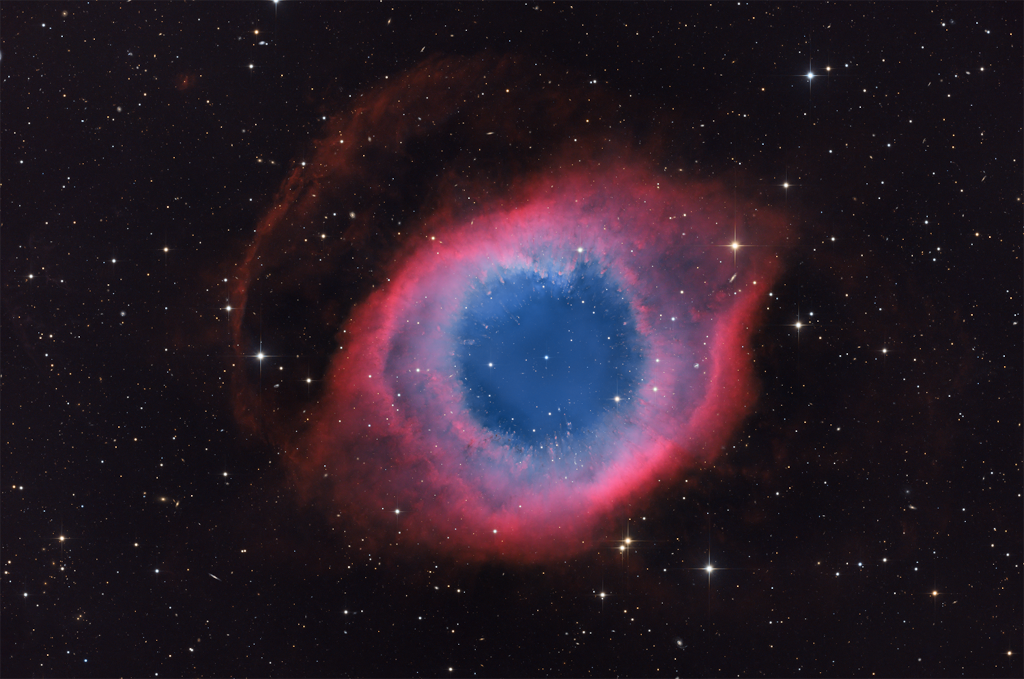Blog
Mahalia Jackson (born Mahala Jackson; October 26, 1911 – January 27, 1972 NOLA) was an American gospel singer, widely considered one of the most influential vocalists of the 20th century. With a career spanning 40 years, Jackson was integral to the development and spread of gospel blues in black churches throughout the U.S. During a time when racial segregation was pervasive in American society, she met considerable and unexpected success in a recording career, selling an estimated 22 million records and performing in front of integrated and secular audiences in concert halls around the world.
The granddaughter of enslaved people, Jackson was born and raised in poverty in New Orleans. She found a home in her church, leading to a lifelong dedication and singular purpose to deliver God’s word through song. She moved to Chicago as an adolescent and joined the Johnson Singers, one of the earliest gospel groups. Jackson was heavily influenced by musician-composer Thomas Dorsey and blues singer Bessie Smith, adapting Smith’s style to traditional Protestant hymns and contemporary songs. After making an impression in Chicago churches, she was hired to sing at funerals, political rallies, and revivals. For 15 years, she functioned as what she termed a “fish and bread singer”, working odd jobs between performances to make a living.
more...Grateful Dead bassist and co-founder Phil Lesh has died at the age of 84. According to a statement from his family, the musician “passed peacefully this morning (Oct. 25). He was surrounded by his family and full of love. Phil brought immense joy to everyone around him and leaves behind a legacy of music and love. We request that you respect the Lesh family’s privacy at this time.”
No cause was provided, although Lesh had a liver transplant in 1998 to combat hepatitis C and battled both prostate and bladder cancer over the years.
Phil like Garcia had a very one of a kind tone & style!
more...Mount Zion Shabbat for the Soul service Friday October 25th 2024 630pm. Music with Jennifer Strauss-Klein, Tami Morse, mick laBriola and more. The D’Var Torah service will feature Dr. Ellen Kennedy. Dr. Kennedy will address a new term, “ecocide” in a brief talk at Shabbat services with follow up on a Sunday morning.Ecocide is the mass damage and destruction of nature: severe, widespread, or long-term environmental damage caused by unlawful or wanton acts.
more...
WR 134 is a variable Wolf-Rayet star located around 6,000 light years away from Earth in the constellation of Cygnus, surrounded by a faint bubble nebula blown by the intense radiation and fast wind from the star. It is five times the radius of the sun, but due to a temperature over 63,000 K it is 400,000 times as luminous as the Sun. Photo by Adam Block.

William Michael “Mickey” McGee (born October 25, 1947, New Orleans, Louisiana, United States – died July 20, 2020) was an American drummer.
McGee found his way to Los Angeles in the early 1970s and made his presence known in the local country rock community where he again attracted the attention of Ronstadt and record producer John Boylan. Boylan hired McGee to play on Ronstadt’s 1973 album, Don’t Cry Now, which went gold two years later. After the release of Don’t Cry Now, McGee toured with Ronstadt, which gave rise to new relationships with other notables such as Jackson Browne, for whom he played drums on For Everyman.
What followed was a long but intermittent gig with the Flying Burrito Brothers that spanned a period from 1975 to 1981. As McGee’s recording experience grew, so did his reputation as an experienced road warrior, making him the likeliest of candidates to assume the role of key sideman for the debuting RCA group, Juice Newton & Silver Spur. He agreed to be their drummer on a series of tours to promote their 1975 album of the same name, and concurrently was able to maintain his commitment to the Flying Burrito Brothers. Another side of McGee would be uncovered after the 1975-1976 Juice Newton tour ended, which was that of a songwriter. Along with collaborator Doug Haywood, McGee penned “Blue,” to be recorded on the second Juice Newton & Silver Spur album, After the Dust Settles, released in 1977. Two years later Juice Newton would record McGee’s composition “I’ll Never Love Again” for the album Well Kept Secret, which was Newton’s first album as a solo artist. “I’ll Never Love Again” has since been covered by many other artists, and was also performed on network television.
McGee
more...Earl Cyril Palmer (October 25, 1924 – September 19, 2008 NOLA) was an American drummer. Considered one of the inventors of rock and roll, he is a member of the Rock and Roll Hall of Fame.
Palmer was one of the most prolific studio musicians of all time and played on thousands of recordings, including nearly all of Little Richard‘s hits, many of Fats Domino‘s hits, “You’ve Lost That Lovin’ Feelin’” by the Righteous Brothers, and a long list of classic TV and film soundtracks. According to one obituary, “his list of credits read like a Who’s Who of American popular music of the last 60 years”.
more...Edmond “Doc” Souchon (October 25, 1897, New Orleans – August 24, 1968, New Orleans) was an American jazz guitarist and writer on music. He was a pivotal figure in the historical preservation of New Orleans jazz in the middle of the 20th century.
Souchon received schooling to become a physician in Chicago, though he was playing regularly in groups such as the Six and Seven Eighths Band in the 1910s. He helped oversee a reconstitution of this band in 1945 as a four-piece, and made many recordings of early string band tunes through the early 1960s. Alongside this, Souchon recorded with many noted New Orleans jazz mainstays, such as Johnny Wiggs, Sherwood Mangiapane, Papa Jack Laine, Raymond Burke, and Paul Barbarin.
Souchon was involved early on in the management of the New Orleans Jazz Club, and served as president of the organization early in its existence. He had his own radio program on WWL, and edited the journal Second Line from 1951 until his death in 1968. Aside from his contributions to jazz journals such as Jazz and Jazz Report, Souchon compiled a photo book with Al Rose entitled New Orleans Jazz: A Family Album, first published in 1967 and subsequently revised in 1978 and 1984.
He helped establish the National Jazz Foundation in 1942, as well as the New Orleans Jazz Museum about a decade later. His record collection, which included some 2,000 recordings of New Orleans jazz, was bequeathed to the New Orleans Public Library, and many other music-related materials he collected are now in the possession of the William Ransom Hogan Jazz Archive at Tulane University.
more...James Edward Heath (October 25, 1926 – January 19, 2020 Philadelphia, PA), nicknamed Little Bird, was an American jazz saxophonist, composer, arranger, and big band leader. He was the brother of bassist Percy Heath and drummer Albert Heath.
From late 1945 through most of 1946, he performed with the Nat Towles band. In 1946, he formed his own band, which was a fixture on the Philadelphia jazz scene until 1949. The band included John Coltrane, Benny Golson, Specs Wright, Cal Massey, Johnny Coles, Ray Bryant, and Nelson Boyd. Charlie Parker and Max Roachsat in on one occasion. The band performed at venues such as the Apollo Theaterin Harlem. Although Heath recalls that the band recorded a few demos on acetate, it never released any recordings, and its arrangements were lost at a Chicago train station. The band dissolved in 1949 so that Heath could join Dizzy Gillespie’s band.
Heath was arrested and convicted twice for the sale of heroin; he was an acknowledged addict. The first time, in the spring of 1954, he was sent to the Federal Medical Center, Lexington, Kentucky, where many musicians and celebrities (and other people) were given treatment. After release, In early 1955, still an addict, he was arrested again, and served most of a six-year prison sentence in Lewisburg. He went cold turkey, and was able to spend a lot of his time engaged in music. While in prison he actually composed most of the Chet Baker and Art Pepper album Playboys (1956). He was released early, on May 21, 1959, and remained clean for the rest of his life; conditions of probation made it difficult, but he managed to start rebuilding his career.
more...
Eddie Lang (born Salvatore Massaro; October 25, 1902 – March 26, 1933) was an American musician who is credited as the father of jazz guitar. During the 1920s, he gave the guitar a prominence it previously lacked as a solo instrument, as part of a band or orchestra, and as accompaniment for vocalists. He recorded duets with guitarists Lonnie Johnson and Carl Kress and jazz violinist Joe Venuti, and played rhythm guitar in the Paul Whiteman Orchestra and was the favoured accompanist of Bing Crosby. Lang suffered from occasional laryngitis, chronic sore throat, and digestion problems. After a doctor recommended a tonsillectomy, Crosby urged Lang to have the operation. Assured that the operation was routine, Lang entered Park West Hospital in Manhattan, but he never awoke from the surgery. He died at the age of thirty in 1933.
more...
Georges Bizet (Alexandre César Léopold Bizet; 25 October 1838 – 3 June 1875) was a French composer of the Romantic era. Best known for his operas in a career cut short by his early death, Bizet achieved few successes before his final work, Carmen, which has become one of the most popular and frequently performed works in the entire opera repertoire.
During a brilliant student career at the Conservatoire de Paris, Bizet won many prizes, including the prestigious Prix de Rome in 1857. He was recognised as an outstanding pianist, though he chose not to capitalise on this skill and rarely performed in public. Returning to Paris after almost three years in Italy, he found that the main Parisian opera theatres preferred the established classical repertoire to the works of newcomers. His keyboard and orchestral compositions were likewise largely ignored; as a result, his career stalled, and he earned his living mainly by arranging and transcribing the music of others. Restless for success, he began many theatrical projects during the 1860s, most of which were abandoned. Neither of his two operas that reached the stage in this time—Les pêcheurs de perles and La jolie fille de Perth—were immediately successful.
After the Franco-Prussian War of 1870–1871, during which Bizet served in the National Guard, he had little success with his one-act opera Djamileh, though an orchestral suite derived from his incidental music to Alphonse Daudet‘s play L’Arlésienne was instantly popular. The production of his final opera, Carmen, was delayed because of fears that its themes of betrayal and murder would offend audiences. After its premiere on 3 March 1875, Bizet was convinced that the work was a failure; he died of a heart attack three months later, unaware that it would prove a spectacular and enduring success.
Bizet’s marriage to Geneviève Halévy was intermittently happy and produced one son. After his death, his work, apart from Carmen, was generally neglected. Manuscripts were given away or lost, and published versions of his works were frequently revised and adapted by other hands. He founded no school and had no obvious disciples or successors. After years of neglect, his works began to be performed more frequently in the 20th century. Later commentators have acclaimed him as a composer of brilliance and originality whose premature death was a significant loss to French musical theatre. 1 June, he was afflicted by high fever and pain, which was followed by an apparent heart attack. He seemed temporarily to recover, but in the early hours of 3 June, his wedding anniversary, he suffered a fatal second attack.He was 36 years old.
more...William George Wyman (Perks; born 24 October 1936) is an English musician who was the bass guitarist with the rock band the Rolling Stones from 1962 to 1993. Wyman was part of the band’s first stable lineup and performed on their first 19 albums. Since 1997, he has performed as the vocalist and bass guitarist for Bill Wyman’s Rhythm Kings. He was inducted to the Rock and Roll Hall of Fame as a member of the Rolling Stones in 1989. Wyman briefly returned to recording with the Rolling Stones in 2023.
more...James Henry “Jimmy” Dawkins (October 24, 1936 – April 10, 2013 Tchula, MS) was an American Chicago blues and electric blues guitarist and singer. He is generally considered to have been a practitioner of the “West Side sound” of Chicago blues.
more...A mere seven hundred light years from Earth toward the constellation Aquarius, a star is dying. The once sun-like star’s last few thousand years have produced the Helix Nebula. Also known as NGC 7293, the cosmic Helix is a well studied and nearby example of a Planetary Nebula, typical of this final phase of stellar evolution. Combining narrow band data from emission lines of hydrogen atoms in red and oxygen atoms in blue-green hues, this deep image shows tantalizing details of the Helix, including its bright inner region about 3 light-years across. The white dot at the Helix’s center is this Planetary Nebula’s hot, dying central star. A simple looking nebula at first glance, the Helix is now understood to have a surprisingly complex geometry.

more...
Saunders Terrell (October 24, 1911 – March 11, 1986 Greensboro, GA), known as Sonny Terry, was an American Piedmont blues and folk musician, who was known for his energetic blues harmonica style, which frequently included vocal whoops and hollers and occasionally imitations of trains and fox hunts.
Terry was born in Greensboro, Georgia. His father, a farmer, taught him to play basic blues harp as a youth. He sustained injuries to his eyes and went blind by the time he was 16, which prevented him from doing farm work, and was forced to play music in order to earn a living. Terry played “Camptown Races” to the plow horses which improved the efficiency of farming in the area. He began playing blues in Shelby, North Carolina. After his father died, he began playing with Piedmont blues–style guitarist Blind Boy Fuller. When Fuller died in 1941, Terry established a long-standing musical relationship with Brownie McGhee, and they recorded numerous songs together. The duo became well known among white audiences during the folk music revival of the 1950s and 1960s, including for collaborations with Styve Homnick, Woody Guthrie and Moses Asch, producing classic recordings for Folkways Records (now Smithsonian/Folkways).
more...
More Posts
- Daily Roots Dennis Brown
- Madeleine Albright Memorial
- Cozmos NGC 7635
- Nils-Aslak Valkeapää
- Louisiana Red
- Stick McGhee
- STOP THE WAR IN UKRAINE World Music with the Doox
- Daily Roots Willie Williams
- Cozmos Aurora Sweden
- Jon Hassell
- George Benson
- Fred Anderson
- World Music JORYJ KŁOC
- Daily Roots Culture
- Cozmos NGC 4571
- David Lindley
- Soloman Burke
- Otis Spann
- Manolis Chiotis
- Son House
